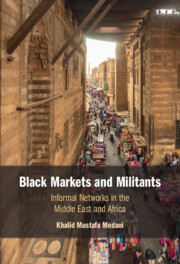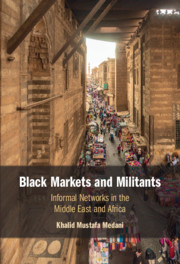Refine search
Actions for selected content:
4 results
8 - How Tea Party Activism Helped Radicalize the House of Representatives
-
- Book:
- The Rise, Fall, and Influence of the Tea Party Insurgency
- Published online:
- 07 December 2023
- Print publication:
- 21 December 2023, pp 146-169
-
- Chapter
- Export citation

Black Markets and Militants
- Informal Networks in the Middle East and Africa
-
- Published online:
- 20 August 2022
- Print publication:
- 08 September 2022
-
- Book
-
- You have access
- Open access
- Export citation
8 - Bullets: Movement and Countermovement
-
- Book:
- The Last Abolition
- Published online:
- 24 September 2021
- Print publication:
- 07 October 2021, pp 271-318
-
- Chapter
- Export citation

Black Markets and Militants
- Informal Networks in the Middle East and Africa
-
- Published online:
- 01 October 2021
- Print publication:
- 14 October 2021
-
- Book
- Export citation
